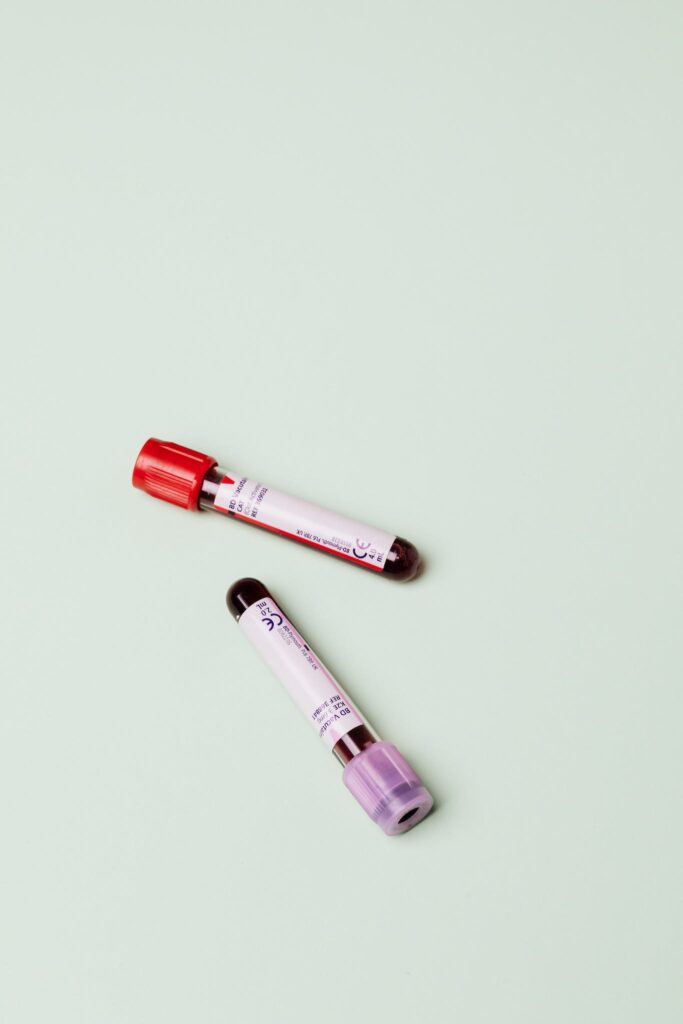Unlock the Secret to How to Reduce Cortisol Levels Naturally
Cortisol is a glucocorticoid hormone influencing energy and our sleep and wake cycle. Melatonin causes people to fall asleep, and cortisol wakes them up in the morning. However, when circadian rhythms are off, high levels of caffeine are consumed, vitamins are depleted, abuse occurs, or even just an extensive amount of stress can cause elevated cortisol levels.
If you do not want to read the full article, here are some supplements that lower cortisol.


Table of Contents
How to Test for High Cortisol Levels
Testing your cortisol levels allows you to see how much it is impacting you as well as to see what is working in your attempts to lower cortisol. There are saliva, hair and blood tests to assess the beginning of your journey of finding the regimen that helps you learn how to reduce cortisol.

Effects of Stress
For over 50 years, the effects of stress on the brain and body have been investigated. Chronic stress can decrease the size of the brain. The damage from stress causes different changes in the brain, including its ability to cope with stress, memory, and thought. The hypothalamic-pituitary-adrenal axis produces stress hormones when the body is in a fight-or-flight response.
A threat or a perceived threat causes catecholamines epinephrine and norepinephrine to increase the heart rate and constrict the blood vessels in the skin and gut. Catecholamines cause the hypothalamic-pituitary-adrenal (HPA) axis to produce cortisol.
Heart Disease
Blood pressure, heart rate, and other cardiovascular markers fluctuate daily based on the circadian rhythm. The integrity of the autonomic nervous system influences these cardiovascular functions when highly stressed blood pressure and heart rate are elevated.
Long-term effects of stress showed a 90% increased risk of cardiovascular events. Individuals with higher cortisol levels increased their risk for hypertension over a six to seven-year timeline and heart attack over an 11-year follow-up.
Memory Impairment
Long-term memory comes from larger parts of the brain, and short-term memory is maintained from the frontal and parietal lobes. The hippocampus converts memories from short-term to long-term. Memory disorders can occur from stress due to high glucocorticosteroids shrinking the hippocampus.
Post-traumatic stress disorder (PTSD) reduces the hippocampus, according to brain scans. Glucocorticosteroids can cause memory problems, which means elevated cortisol levels after prolonged stress reduce memory.
Cognition and Learning Decline
Cognitions are our perception and reception of stimuli, which include learning, attention, judgment, and decision-making. Memory and cognitions are formed in the hippocampus, amygdala, and temporal lobe. Stress causes high cortisol levels and interferes with cognition. Stress results in glucocorticosteroid release. Glucocorticosteroids diffuse through the blood-brain barrier, causing long-term effects on cognition.
Cognitions are altered by long-term stress, causing gene expressions to be altered. Stress affects cognitions based on the duration and intensity of it.
Mental Health Disorders
HPA axis hyperactivity leads to behavioral and mental health disorders such as anxiety and depression. Discrimination based on body weight increased stress levels compared to those who felt they were not discriminated against.
Childhood trauma, being in lower socioeconomic status, and stress on babies during pregnancy showed higher amounts of cortisol.
Sleep Issues
Cortisol highly influences wakefulness and issues with insomnia. Every tissue in the circadian rhythm is affected by cortisol, which contributes to an imbalance in melatonin production and issues falling or staying asleep.

Sleep has three stages: awake, rapid eye movement (REM), and nonrapid eye movement (NREM). NREM has four stages: one and two are lighter, and three and four are deeper, resulting in more restful sleep. The autonomic nervous system (ANS) regulates sleep by lowering sympathetic (fight-or-flight) function during stages one and three of (NREM) sleep.
REM sleep is predominately a state of parasympathetic activity, but there are times when the sympathetic nervous system elevates blood pressure and heart rate during sleep. REM sleep occurs more during the early morning hours. Typically, cardiac events occur in the morning because of the changes in heart rate and blood pressure. Cardiac death, atrioventricular block, and a minor heart attack occur 40% more between 6 a.m. and 12 p.m. Jet lag and graveyard shift work create an imbalance in syncing the peripheral body clock with the cardiovascular system.
Circadian-Rhythm
Cortisol regulates the circadian rhythm on a 24-hour cycle. This rhythm impacts the brain, autonomic nervous system, and cardiovascular system. Cortisol is low when someone falls asleep and is highest when they wake up. Light and dark cycles from the environment impact the function of the circadian rhythm.
The control system of the circadian rhythm is the Suprachiasmatic Nucleus in the hypothalamus. The gastrointestinal system, liver, adipose tissue, muscle, and cardiovascular tissues also regulate the clock of the circadian rhythm. The function of this clock causes the body to release hormones, regulate the sleep and wake cycle, and the immune system. This clock even communicated to the immune system what time of the day it was.
Cortisol is controlled by the HPA axis and is secreted by the adrenal glands into the blood through a circadian and ultradian rhythm. The suprachiasmatic nucleus and the adrenal gland clock produce more cortisol around 7 a.m.- 8 a.m. and the lowest around 2 a.m.- 4 a.m.
Belly Fat

Abdominal fat is higher in individuals with high cortisol levels and an imbalance in blood sugar levels. Inflammation, metabolic disorders, excess estrogens from the environment, and other factors cause weight around the abdomen. Stress increases insulin, which causes the body to store excess abdominal fat.
When individuals are exposed to glucocorticoids at high levels, they can develop abdominal obesity and metabolic syndrome. Cortisol is a glucocorticoid that causes redistribution of white adipose tissue (belly fat) in the abdomen. Learning how to reduce cortisol can help minimize appetite by minimizing the cravings for comfort foods that elevated cortisol levels cause.
When glucocorticoids are produced, they decrease the brain’s sensitivity to leptin (fullness hormone) and increase insulin resistance. These hormones increase a preference for foods higher in sugar and fat. Blood sugar imbalance also affects mood and can increase anxiety and depression.
Additional Physical Effects
When the HPA axis is overworked, it can lead to adrenal fatigue and other metabolic, inflammatory, and mental health disorders.
- Muscle soreness
- Decreased bone and muscle mass leading to osteoporosis
- Visceral fat increases
- Hair loss
- Fatigue
- Rashes
- Skin Conditions
- Hormonal Imbalance
- Heart Disease
- Digestive Issues
- Adrenal Insufficiency
Elevated cortisol impairs immune function, which causes individuals to be vulnerable to more frequent illness. A research study showed that women who had higher levels of stress and, therefore, impaired immune function had an increased risk of developing cancer. Glucocorticoids influence the inflammatory and immune response.
Symptoms of High Cortisol
- Weight Gain (especially in the face and abdomen)
- Diabetes
- Hirsutism in Women
- Muscle Weakness
- Hormonal Imbalance
- Increased Irritability
- High Blood Pressure
How to Lower Cortisol Levels
Mindfulness is a concept that utilizes being present in the moment and observant of interactions, thoughts, feelings, cravings, and more. Mindfulness is like a mental vacation. Mindfulness exercises may help you feel calm if you overthink or get overwhelmed. Mindfulness meditations make it easier if you follow a guided meditation to help you focus on different elements and parts of your body while freeing your mind of stress.
Research shows that with mindfulness meditations over a 4-day mindfulness program, cortisol levels dropped 75.55 nmol/L.
Coping with stress makes it sound easier than it is occasionally. However, managing stress by boundary setting, taking breaks, exercising, laughing, and getting optimal sleep.
Relaxation techniques such as grounding, deep breathing, and progressive muscle relaxation relax the body and mind, lowering cortisol.
Exercise naturally increases serotonin levels, making them effective in boosting mood and decreasing anxiety and depression symptoms.
Supplements to Lower Cortisol
Rhodiola Rosea alleviates stress-related fatigue and decreases cortisol upon awakening in burnout patients. Other adaptogenic herbs help lower cortisol levels and increase energy depending on the body’s needs.

Ashwagandha lowered cortisol levels by 27.9% after 60 days of supplementing with 600mg of Ashwagandha daily. Another study with at least 250mg of Ashwagandha lowered cortisol levels over an eight-week study. The benefits of Ashwagandha are lengthy, including giving a natural boost of energy that is not stimulating.

Inositol comes in two forms: Myo-inositol and d-chiro-inositol. A combination of both forms is beneficial for anxiety attacks, reducing cortisol and balancing hormones and blood sugar in individuals with PCOS (polycystic ovarian syndrome). Inositol is water soluble because it is a b-vitamin recommended to be taken in high amounts. Research studies recommend 18 g of inositol daily to eliminate panic attacks and lower blood sugar and cortisol. This study compared inositol to an SSRI fluvoxamine, and the participants who took inositol had fewer side effects and better results.

Foods to Reduce Cortisol
Protein-rich foods help to create blood sugar balance, which helps stabilize mood. Cortisol causes high blood sugar, and sugary foods increase cortisol production, making it a vicious cycle.
Green tea is lower in caffeine than coffee but contains L-theanine, which reduces stress and lowers cortisol.
Conclusion
Stress management techniques include regulating your nervous system through relaxation techniques and eating balanced protein, fat, and fiber, which can lower cortisol. Many supplements lower cortisol and complement the use of exercise and boundary setting. Learning how to lower cortisol is an ongoing process, but it has many benefits.
Originally posted 2024-01-03 05:49:43.
Megan Santiago
Latest posts by Megan Santiago (see all)
- How to Find a Trauma Therapist in Tampa - September 30, 2024
- How TMS Therapy Improves Anxiety - March 10, 2024
- How to Feeling Relaxed with the Best L-theanine Supplements - March 10, 2024

